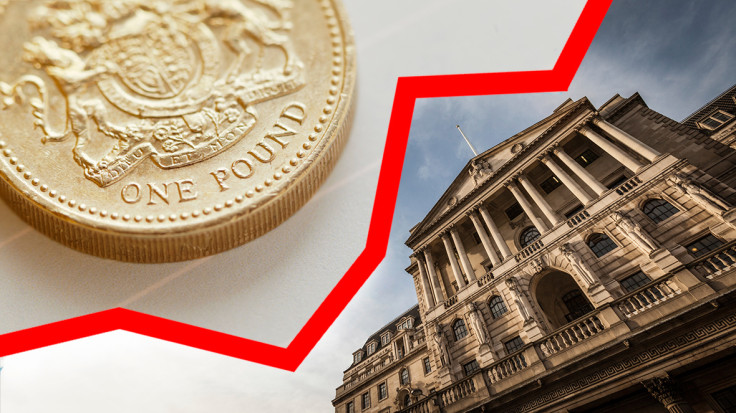UK interest rate hike looms as wages rise faster than inflation
The Office for National Statistics says that average weekly earnings in the three months to February rose 2.8 percent

Average wages in Britain are rising faster than prices for the first time in about a year, official figures showed Tuesday, a development that will likely fuel expectations that the Bank of England will raise interest rates again next month.
The Office for National Statistics says that average weekly earnings in the three months to February rose 2.8 percent from the year before, ahead of the 2.7 percent inflation recorded during the month. That means households should have a bit more in their pockets to spend following a period when price increases have eaten away at their purchasing power.
The squeeze on household incomes was largely due to Britain's vote in June 2016 to leave the European Union. The surprise vote led to a sharp fall in the value of the pound, which raised the cost of imported goods, notably food and energy. By the early months of 2017, inflation was rising faster than wages — a net drag on the economy as households spent less.
Though wages have picked up more slowly than many economists had anticipated, the Bank of England has positioned itself to raise interest rates again soon to keep a lid on inflation.
The bank has been expecting a pick-up in pay as a drop in unemployment boosted workers' bargaining power. Tuesday's figures showed there were 1.42 million unemployed people in Britain in the three months to February, 16,000 fewer than the previous three-month period, and that the unemployment rate was at 4.2 percent, its lowest since 1975.
The Bank of England has hinted that it could increase its main interest rate by a quarter-point to 0.75 percent at its next policy meeting on May 10. The bank is tasked with setting policy to achieve an inflation rate of around 2 percent and updated figures due Wednesday are not expected to show much change in the annual rate in March.
"The figures reinforce expectations the Bank of England will lift interest rates at its May policy meeting," said Ben Brettell, senior economist at stockbrokers Hargreaves Lansdown. "Markets are now pricing in an 85 percent chance of a rate rise."
That probability is evident in the performance of the pound which has rallied this year, particularly in the past few trading sessions. After the labor market figures it was steady at $1.4363, its highest since the Brexit vote.
As well as expectations of higher interest rates, the currency has been buoyed by waning concerns over Brexit after the British government agreed on the outlines of a transition deal with the EU after it leaves in March 2019. During the transition, Britain will remain part of the frictionless single market and customs union until the end of 2020, assuaging some of the concerns of businesses.
However, Brexit worries have the potential to re-emerge over coming months as the actual date of departure approaches and if a deal with the EU proves thorny — a failure to achieve a post-Brexit deal would mean there is no transition.
"Brexit talks still have the potential to get noisy in the autumn," said James Smith, developed markets economist at ING.
© Copyright IBTimes 2025. All rights reserved.





















